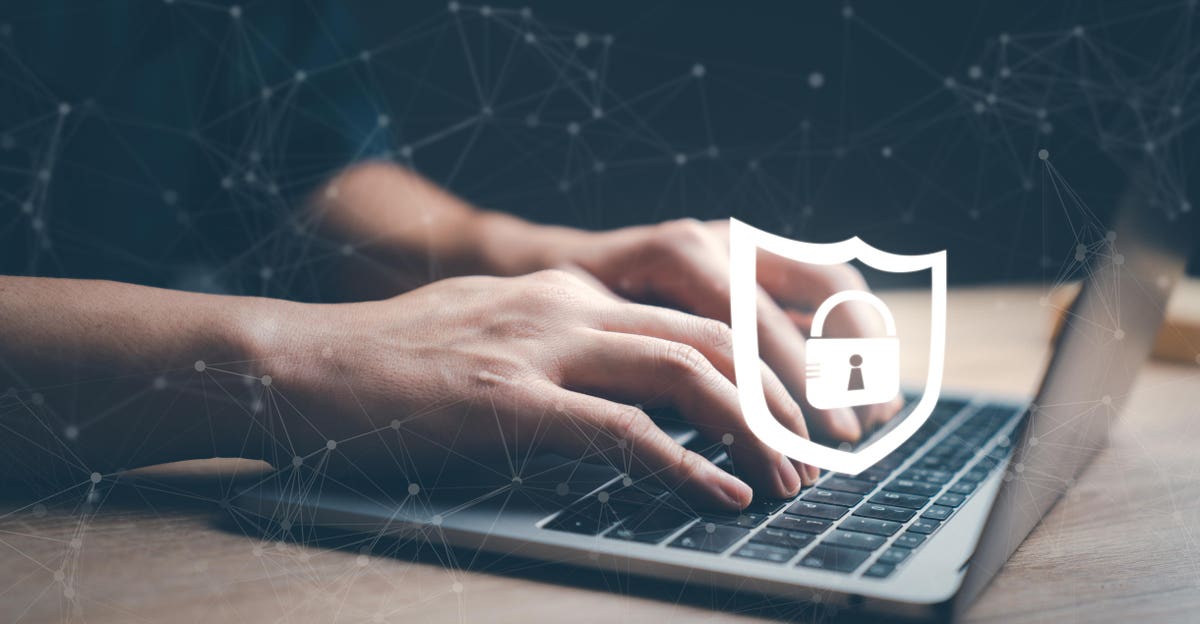Award-winning Internet pioneer in Internet governance, George Usi is Co-Founder of Omnistruct, a cyber risk company.
The rising number of cyber threats, data breaches and regulatory requirements means CEOs and CFOs need to prioritize cybersecurity initiatives. In fact, when polled by McKinsey, 48% stated that they were prioritizing cybersecurity in 2023.
What lurks beneath the word “cybersecurity” is a three-legged stool: governance, risk and compliance (GRC). Many of us comprehend “compliance,” but fewer completely understand what’s at risk to CEOs, CFOs and other C-Suite members financially when legal and regulatory come knocking—the aftermath can include reputational damage and financial losses to the organization and to the C-Suite personally.
In this article, we will explore the importance of cybersecurity compliance and governance, its impact on businesses and the C-Suite, and key steps for how you can transfer risk away while capitalizing on business opportunities.
Understanding The “G” In Cybersecurity Compliance
Cybersecurity compliance refers to an organization’s adherence to a set of regulations, laws and industry standards designed to safeguard sensitive data and digital assets. Compliance requirements vary depending on the industry, organization size and geographical location. Some widely recognized cybersecurity frameworks include ISO 27001, NIST Cybersecurity Framework and the General Data Protection Regulation (GDPR).
Despite increased spending, cybersecurity is not pivoting fast enough to prevent attacks. According to Cybersecurity Ventures, “cybercrime in 2023 is predicted to cost the world $8 trillion. If it were measured as a country, cybercrime would be the world’s third-largest economy after the U.S. and China.” That figure is expected to rise by 15% annually for the next three years. The IBM 2023 “Cost of a Data Breach” report found that the average total cost of cybersecurity breaches in the U.S. in 2023 is $4.45 million. As stated by Paloalto regarding the study, “The general consensus among industry experts is that an organization facing a cybersecurity breach or attack is not a matter of ‘if,’ but rather ‘when.'”
A common misconception is that compliance requires only a technological solution, making the Chief Technology Officer (CFO) solely responsible. In reality, the CEO and CFO can both be held personally accountable if all requirements are not met when the organization has an incident. In my experience in the cybersecurity industry, many executives fail to consider the “hidden costs” or risks associated with responding to and recovering from a cybersecurity incident, such as lost contracts or fines for executives. IBM’s report states that the average liability is an additional $4.35 million.
This is why “governance” is required. However, applying this governance should involve more than just a “one-and-done test.” Many organizations will require continual compliance to navigate continual attacks.
Why Continual Cybersecurity Compliance Matters
Continual cybersecurity is vital because a business’s digital assets are vulnerable even when appropriate security measures are in place. According to Verizon’s 2023 Data Breach Investigations Report (DBIR), “the three primary ways in which attackers access an organization are stolen credentials, phishing and exploitation of vulnerabilities.” What’s more, while we hear of big corporations being hacked, they aren’t the only targets. Most security breaches happen to small businesses, as well as random individuals. With cybersecurity, everyone is a victim.
With that in mind, what can continual compliance to cybersecurity GRC help your company do?
• Protect Sensitive Data: A primary objective of cybersecurity compliance is to protect sensitive data like customer information, financial data and intellectual property. Implementing robust cybersecurity policies and procedures and monitoring them continuously can help significantly reduce the risk of data breaches.
• Mitigate Financial And Reputational Risks: From financial losses and legal penalties to reputational damage to both the organization and the executives, the fallout from a cyber incident can be devastating for any organization. Governance and compliance efforts can help mitigate these risks.
• Gain Competitive Advantage: Organizations with a strong cybersecurity posture can gain a competitive edge because customers and partners are more likely to trust organizations that prioritize cybersecurity.
• Meet Regulatory Obligations: Compliance is not a choice; it’s a legal requirement in most industries, in one way or another. Failure to meet relevant regulations can result in hefty fines, legal actions and potential suspension of operations. Cybersecurity governance and compliance ensures that your business aligns with cross-border applicable laws, minimizing the risk of penalties and legal troubles when a hack does occur.
Key Steps To Continual Cybersecurity Compliance
1. Conduct a comprehensive risk assessment. Identify and assess potential cybersecurity risks within your organization. Understand the type of data you handle, the systems involved and the potential impact of a security breach.
2. Develop a robust cybersecurity policy. Create a clear and comprehensive cybersecurity policy that outlines the standards, guidelines and best practices for safeguarding information assets. I recommend that this policy require continuous monitoring, updates (governance) and team training to keep up with fluctuating regulations and requirements that can cost businesses their contracts.
3. Implement security controls and technologies. Deploy appropriate security controls and technologies to protect your digital infrastructure. This may include firewalls, encryption, intrusion detection systems, multi-factor authentication and regular software updates.
4. Continual compliance audits. Regularly conduct internal and external audits to assess the effectiveness of your cybersecurity program. These audits help identify gaps, weaknesses and areas for improvement, enabling you to proactively address potential vulnerabilities.
5. Collaborate with experts. Cybersecurity is a complex landscape of ever-changing tactics to thwart threats. If you do not have a trained and dedicated team in-house, consider seeking guidance from cybersecurity professionals. (Full disclosure: My company offers this service, as do others.)
Cybersecurity compliance today is a critical business imperative. By prioritizing cybersecurity, CEOs and CFOs can help protect their organizations’ reputations and financial stability.
Forbes Business Council is the foremost growth and networking organization for business owners and leaders. Do I qualify?
Read the full article here




